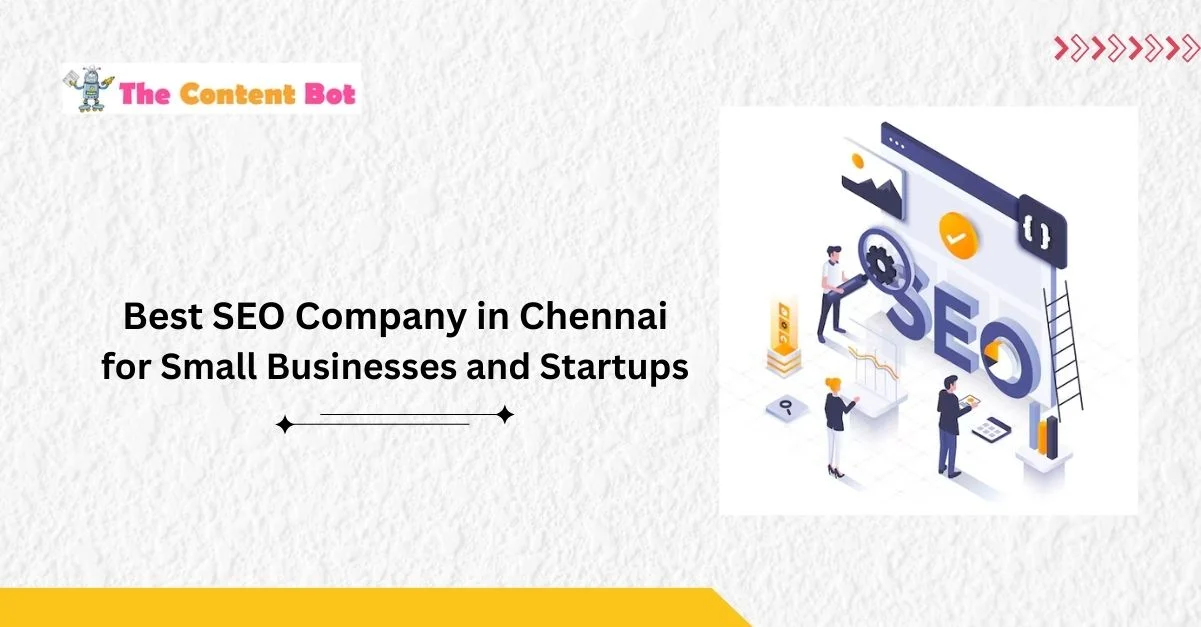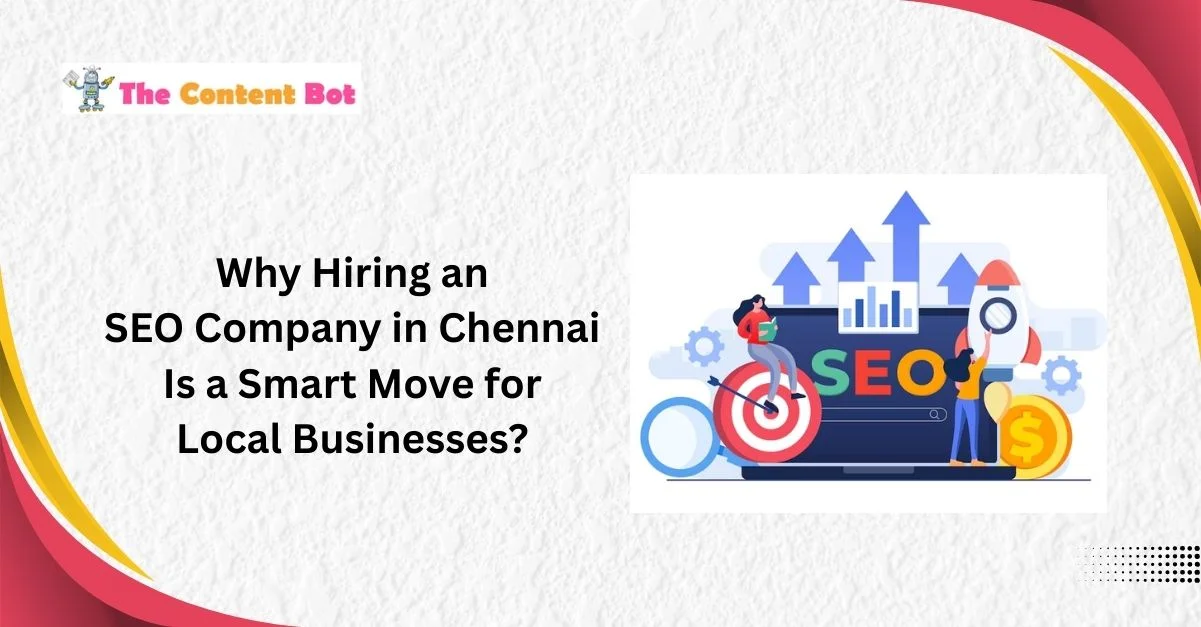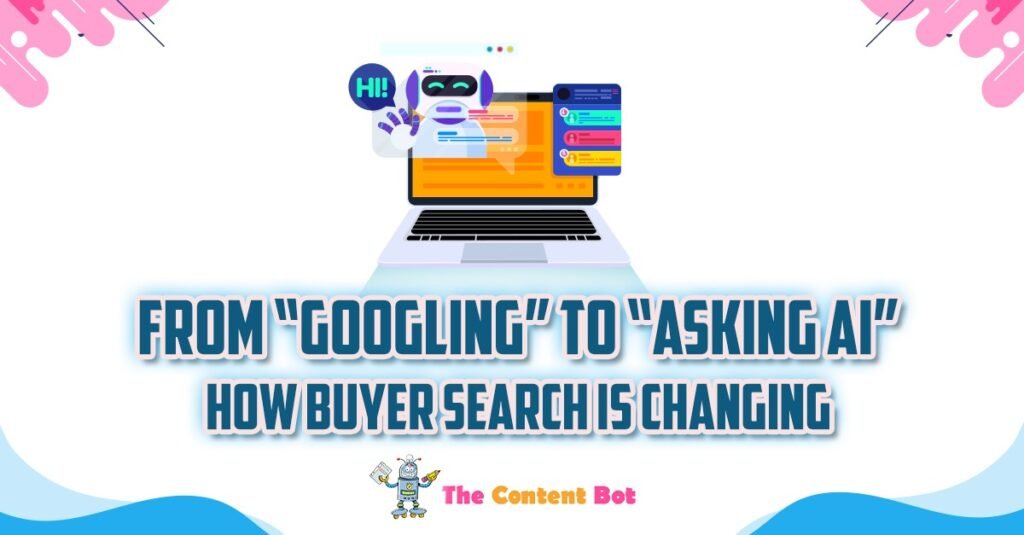
For years, buyers typed keywords into Google, scanned links, and chose the best fit. But in 2025, the landscape is shifting. Buyers now ask AI assistants, chatbots, and smart search tools for answers and often get them without clicking a single website. This shift from “Googling” to “Asking AI” is reshaping how businesses are discovered. In this blog, we’ll explore what this change means for SEO, content, and your B2B visibility.
1. The Shift from Links to Direct Answers
Google once rewarded you with clicks if you ranked high. Now, AI tools and answer engines give buyers direct responses. Instead of sifting through ten results, decision-makers expect one clear, trusted answer. If your brand isn’t optimised for this, your visibility shrinks.
Key Insight: Discovery is moving from pages to answers brands must adapt to being cited, not just listed.
2. AI Assistants Are the New Gatekeepers
From ChatGPT to Google’s AI Overviews, AI tools are filtering what buyers see. This means your content must not only be SEO-optimised but also AI-ready. If you’re not producing structured, authoritative, and clear content, AI assistants will simply ignore you.
Key Insight: The buyer’s first impression may now come from an AI assistant not your website.
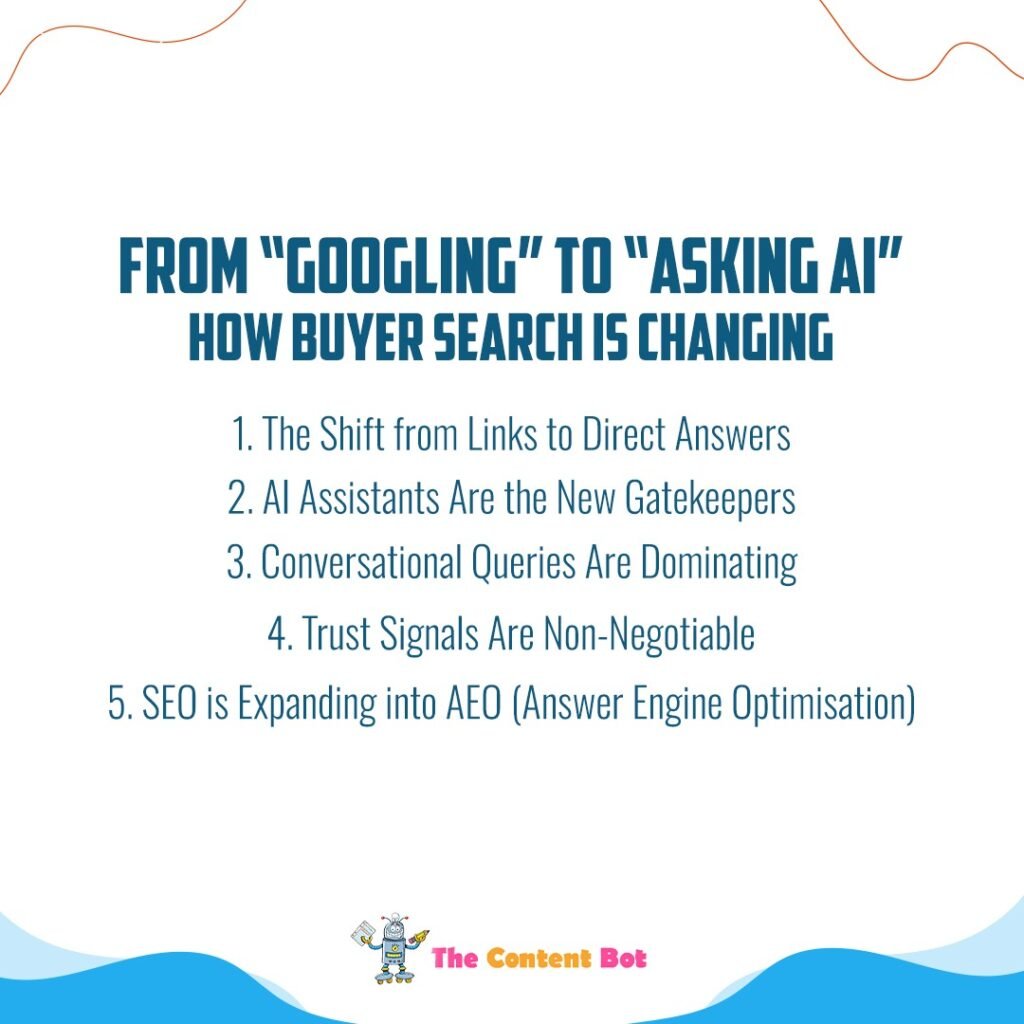
3. Conversational Queries Are Dominating
Instead of typing “best CRM software,” buyers ask, “Which CRM is best for a 50-person SaaS company?” These longer, conversational queries demand content that mirrors natural speech. Old keyword-first strategies won’t capture these new search behaviors.
Key Insight: Content must answer full, conversational questions to stay relevant in AI-driven discovery.
4. Trust Signals Are Non-Negotiable
AI models and algorithms prioritise credibility. That means backlinks, reviews, author expertise, and brand authority matter more than ever. If your site looks shallow or untrustworthy, AI won’t recommend you and buyers won’t either.
Key Insight: Authority is the currency of AI-driven search. Without it, you’ll never be the chosen answer.
5. SEO is Expanding into AEO (Answer Engine Optimisation)
Traditional SEO isn’t dead, but it’s evolving. AEO focuses on structuring content for AI and answer engines: FAQs, schema markup, concise answers, and authoritative depth. Businesses that adapt early will capture buyer attention long before competitors.
Key Insight: The future of SEO is AEO optimising not just for rankings, but for answers.
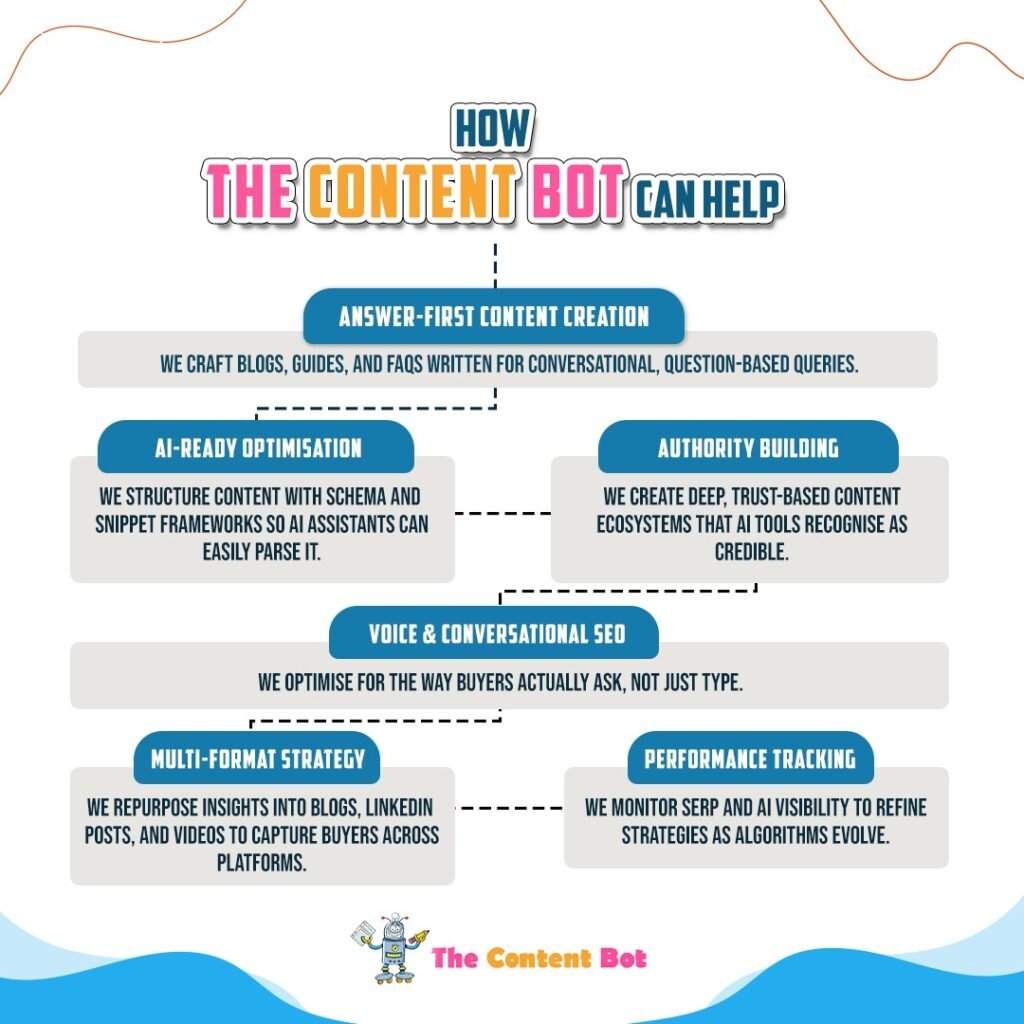
How The Content Bot Can Help
At The Content Bot, we help businesses evolve from SEO-only strategies to SEO + AEO strategies designed for AI-driven search. Here’s how we do it:
- Answer-First Content Creation -We craft blogs, guides, and FAQs written for conversational, question-based queries.
- AI-Ready Optimisation -We structure content with schema and snippet frameworks so AI assistants can easily parse it.
- Authority Building -We create deep, trust-based content ecosystems that AI tools recognise as credible.
- Voice & Conversational SEO -We optimise for the way buyers actually ask, not just type.
- Multi-Format Strategy -We repurpose insights into blogs, LinkedIn posts, and videos to capture buyers across platforms.
- Performance Tracking -We monitor SERP and AI visibility to refine strategies as algorithms evolve.
With us, your brand doesn’t just rank it becomes the answer buyers trust.
Frequently Asked Questions
1. Does this mean SEO is dead? No. SEO is evolving. Traditional rankings matter less, but optimising for intent and answers matters more.
2. What’s the difference between SEO and AEO? SEO optimises for rankings. AEO (Answer Engine Optimisation) optimises for being the chosen answer in AI-driven search.
3. How do I make my content “AI-ready”? By creating structured, conversational, authoritative content that clearly answers buyer questions.
4. Will small businesses be able to compete in this new search world? Yes. Authority and trust matter more than size small, credible brands can still dominate.
5. How does this affect B2B marketing? B2B buyers research more deeply. AI-driven search means you must provide precise, context-rich content for each stage.
6. Is voice search part of this shift? Yes. Many AI-driven queries happen through voice, making conversational optimisation essential.
Here’s How This Helps
SaaS Company Becomes the AI Answer
A SaaS company structured its blogs around FAQs and conversational queries. Within months, their content began appearing in Google’s AI overviews, driving inbound demos.
Consulting Firm’s Authority Win
A consulting firm invested in long-form, research-backed guides. Their content was frequently cited in AI-driven search summaries, boosting credibility.
Local Supplier’s Voice Search Boost
A supplier optimised FAQs for “near me” queries. They started ranking in assistant responses, increasing direct inquiries by 25%.
IT Services Company’s SEO-to-AEO Shift
An IT firm focused only on keywords. After adopting AEO strategies, they captured both organic rankings and AI-driven snippets, doubling lead flow.
The way buyers search has changed. They’re no longer just “Googling” they’re asking AI for answers. If your content isn’t ready for this shift, you’ll be left behind. At The Content Bot, we help businesses stay ahead with intent-driven, answer-first, authority-rich strategies that win in the AI era. Don’t just chase rankings become the answer your buyers are searching for.



